Conservation Project at Maori Meeting House
Recording Hinemihi using Computational Photography
On Sunday the 23rd June 2013, a team from the University of Southampton took part in Hinemihi’s annual Maintenance Day. Using cameras, combined with new computational photography techniques, the team recorded some interesting details of Hinemihi.
Hinemihi is a Maori Meeting House, one of only four outside of New Zealand. Hinemihi is situated in the grounds of Clandon Park, a National Trust managed site. Every year, University College London Institute of Archaeology brings Conservation students and staff to Clandon Park, and along with volunteers, work to clean Hinemihi. Yvonne Marshall, Eleonora Gandolfi and I (Nicole Beale), spent the day working with the staff and students present, alongside many volunteers, to create some RTIs of Hinemihi. We were delighted to be able to attend this year’s event.
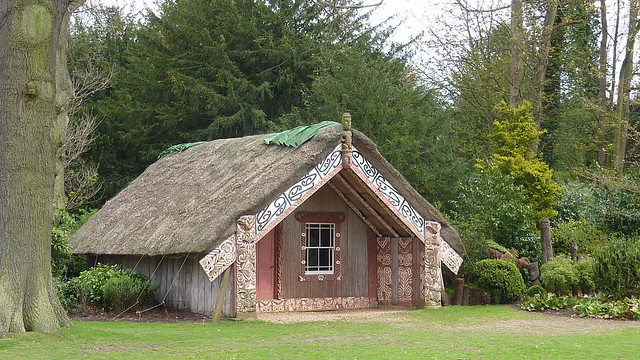
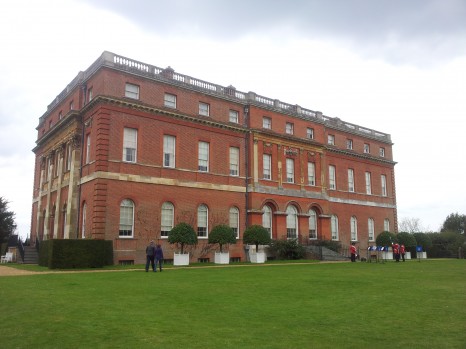
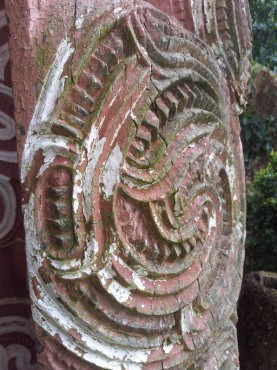
The meeting house has some interesting etched words on the wooden carved sculptures that make up her interior and exterior. These engraved words have been eroded and in some cases almost entirely lost underneath the many layers of paint that protect the wood underneath. We were interested to find out how useful RTI would be to record and decipher this text. I think that you’ll agree that the results below give the answer: Very useful indeed!
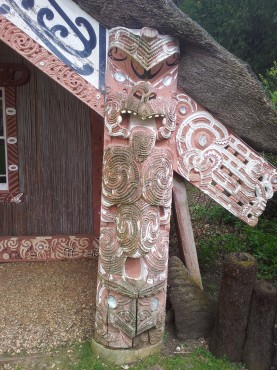
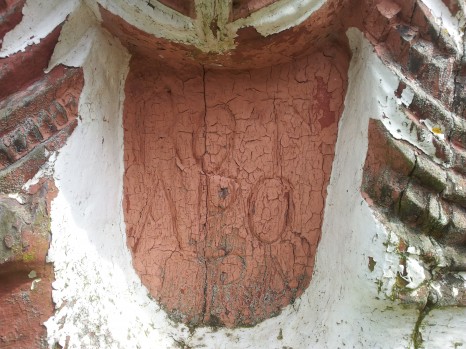
We also carried out a few other quick recording techniques, which I’ve outlined below. We’re hoping to return to Hinemihi soon with UCL, to contribute more to the recording of this important Maori Meeting House.
Useful Links
Hinemihi’s website, Te Maru O Hinemihi, is: http://www.hinemihi.co.uk/
National Trust’s webpages for Clandon Park and Hinemihi: http://www.nationaltrust.org.uk/clandon-park/things-to-see-and-do/maori-meeting-house/
UCL IoA website: http://www.ucl.ac.uk/archaeology/calendar/articles/20130619
You can read more about UCL’s involvement in Hinemihi here: http://www.ucl.ac.uk/archaeology/research/directory/hinemihi_sully
Photogrammetry
Taking a series of photographs which overlap by a minimum of 30%, we created a 3D model of some of Hinemihi’s sculptures. If you would like to try this, there is a free version of photogrammetry software here: http://www.123dapp.com/
Photogrammetry Results
This is the result of the photogrammetry that we did on the roof support pole.
Reflectance Transformation Imaging
With a technique called Reflectance Transformation Imaging, we made images of objects that have an interactive light-source. These image look just like photographs, but allow you to see surface information of the objects that would normally be invisible to the naked eye. You can try this yourself as the software is free, visit: http://culturalheritageimaging.org/Technologies/RTI/
RTI Results
Click on the images below to see the results. Each image will rotate through the results of the RTI. Our Flickr page has the high resolution images, ACRG Flickr Group:
Word no. 1
Word no. 1 close-up
Word no. 2
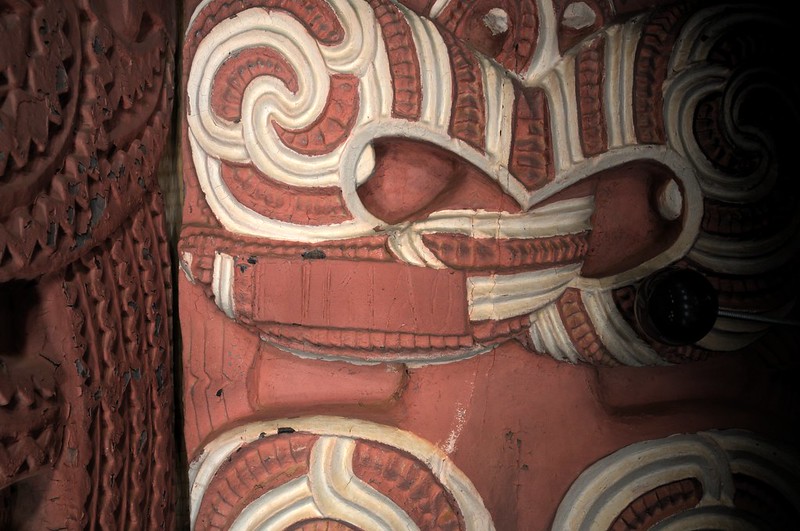

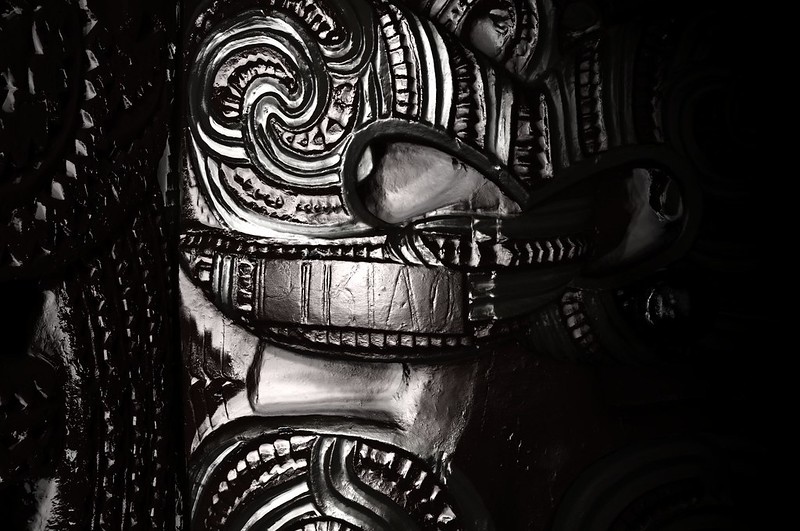
Word no. 2 close-up
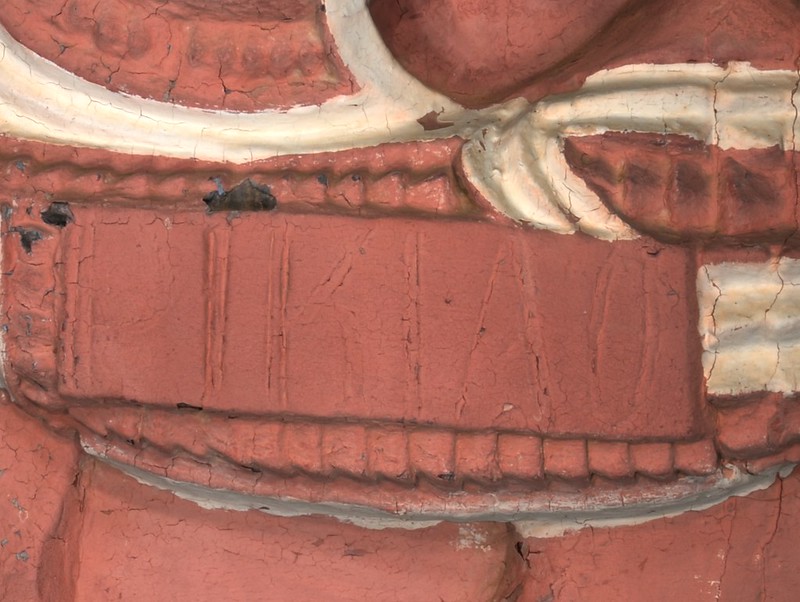
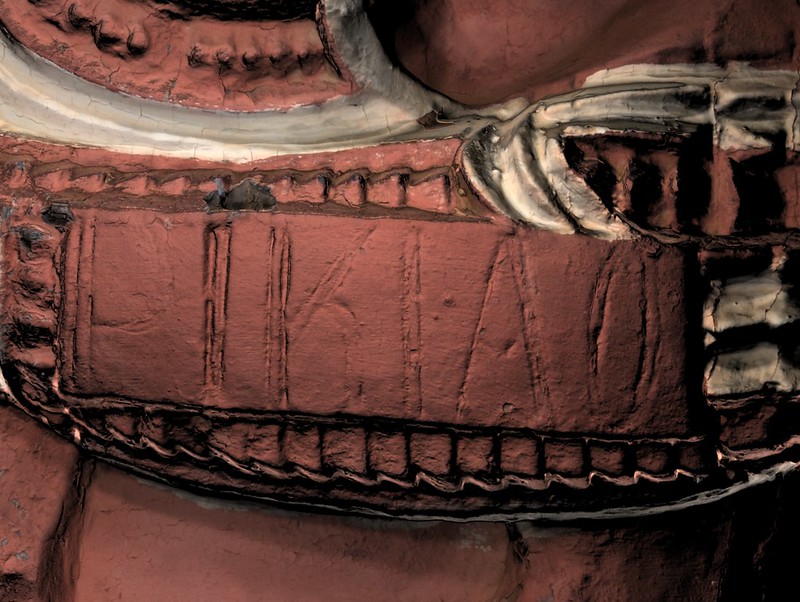
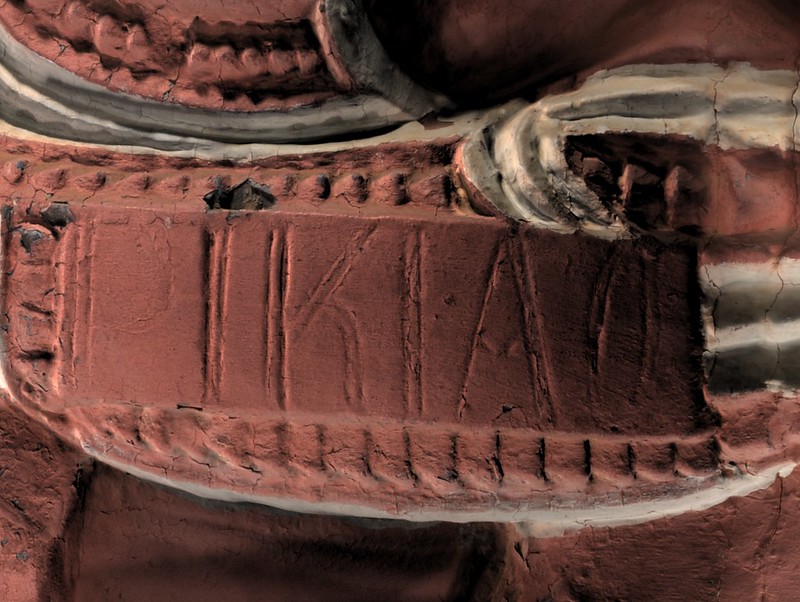
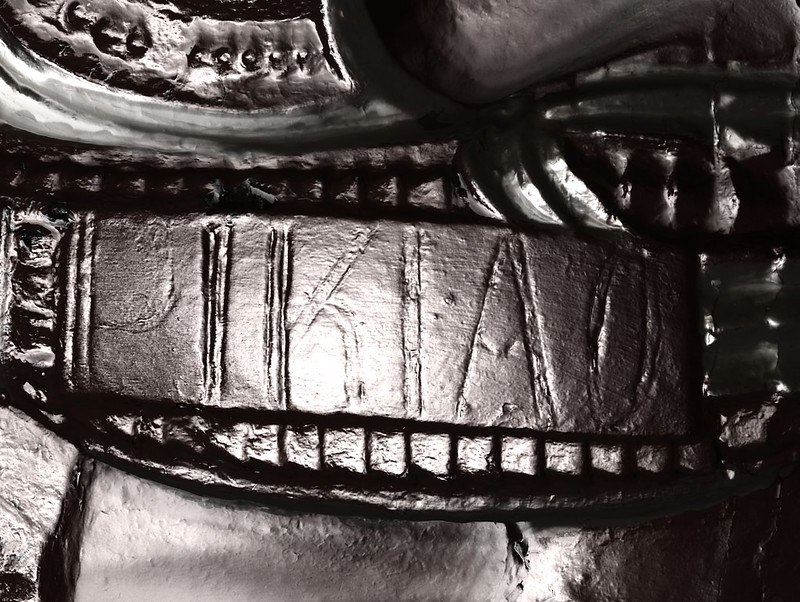
Word no. 3
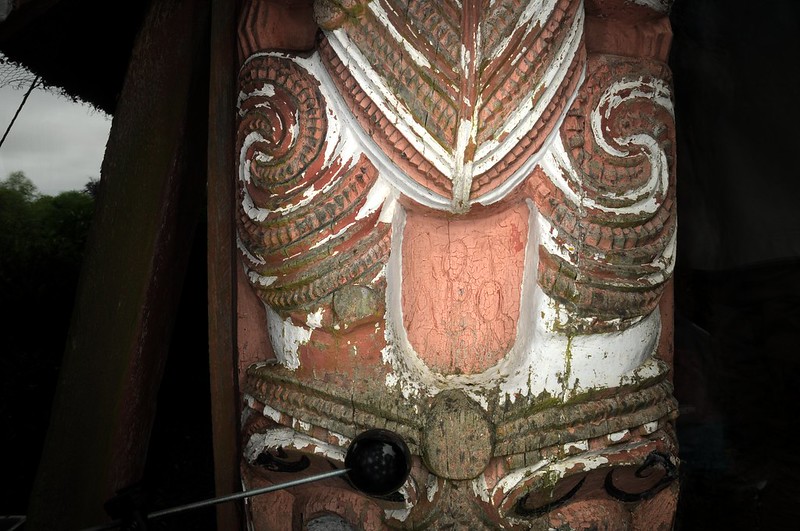
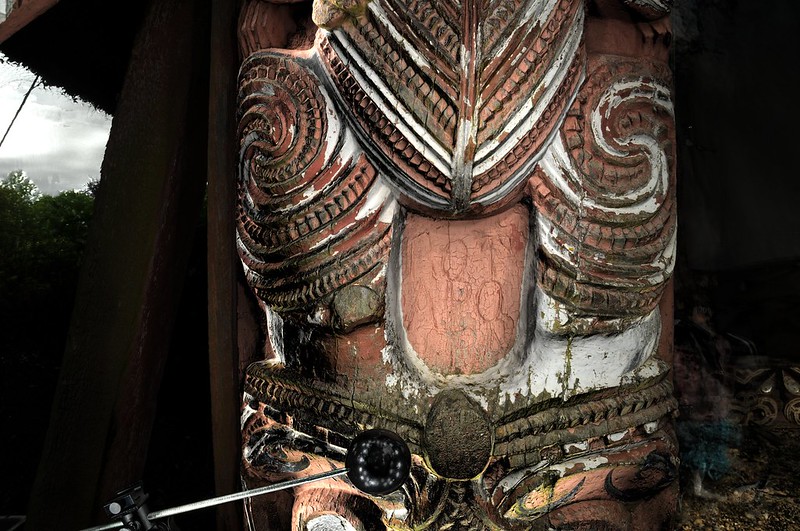
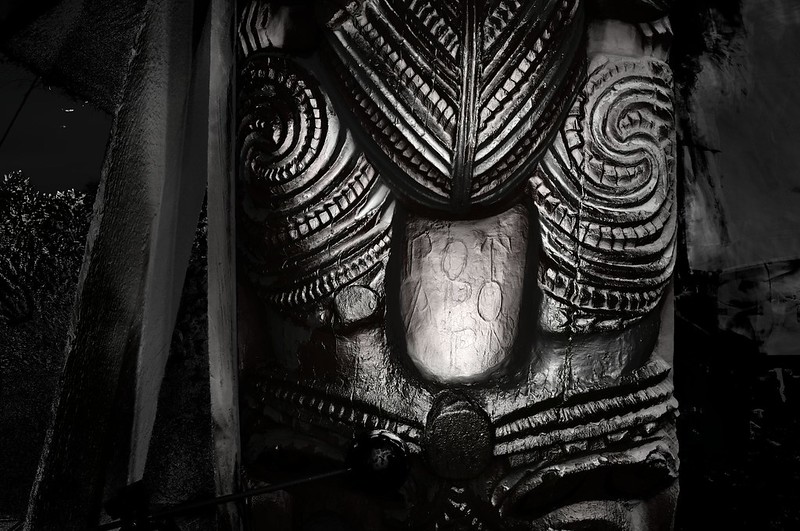
Word no. 3 close-up
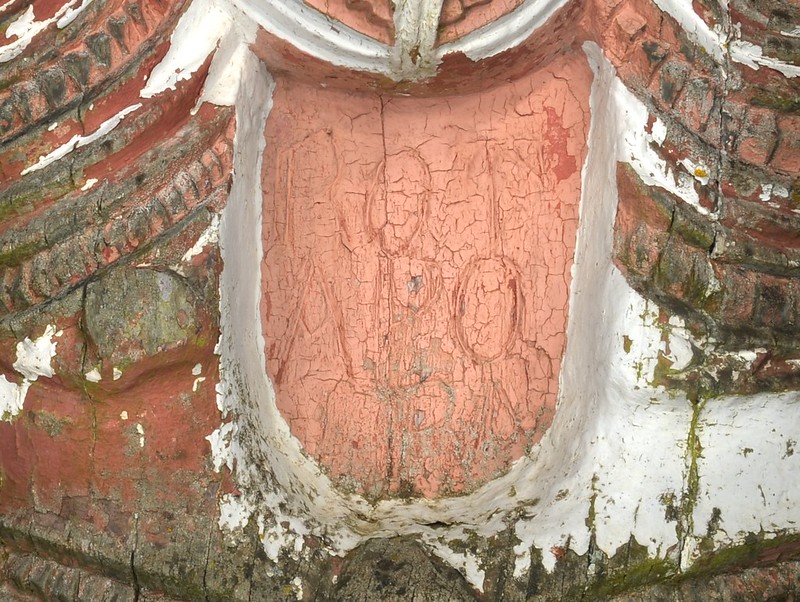
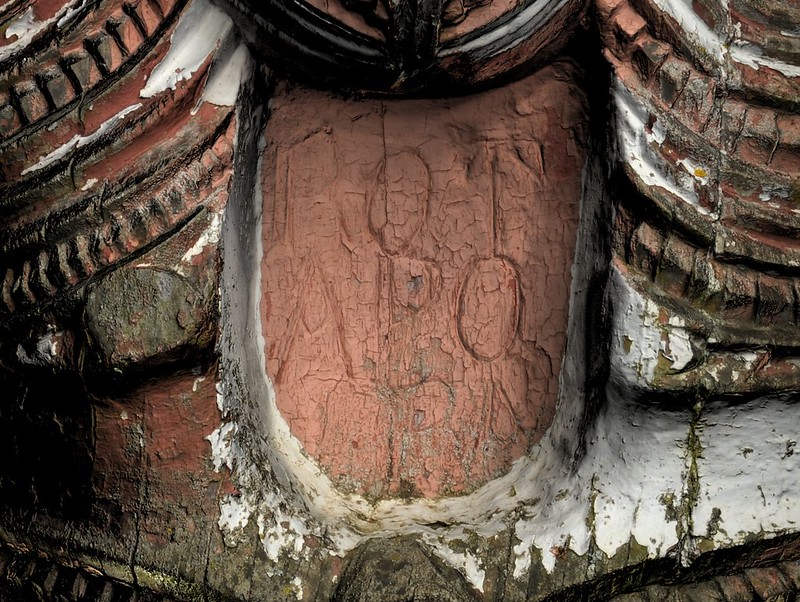
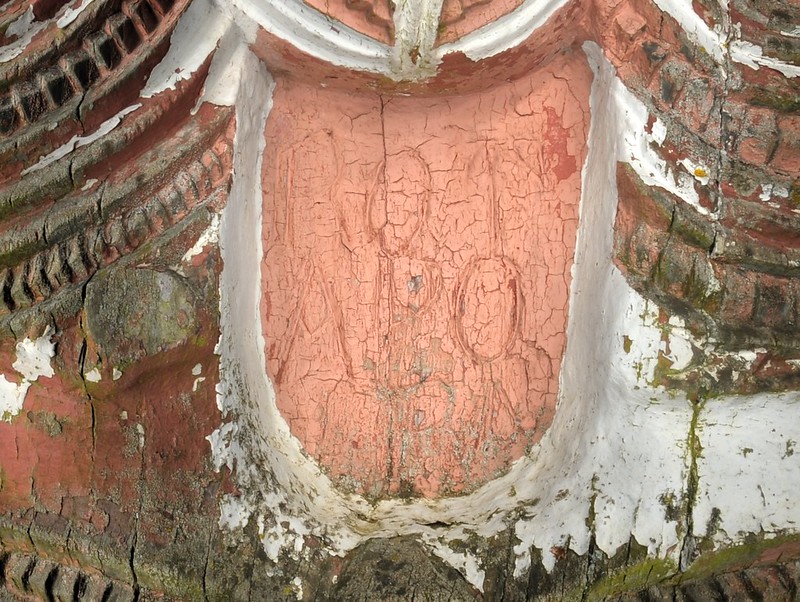
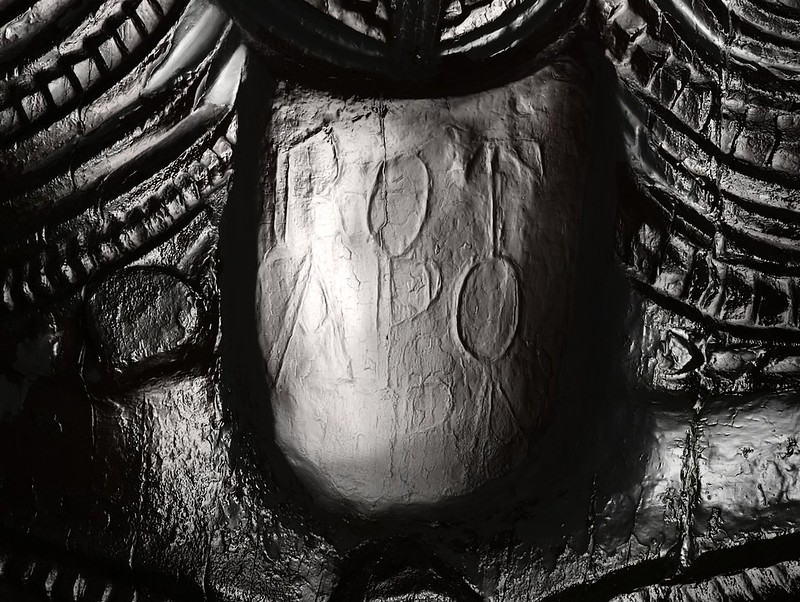
Word no. 4
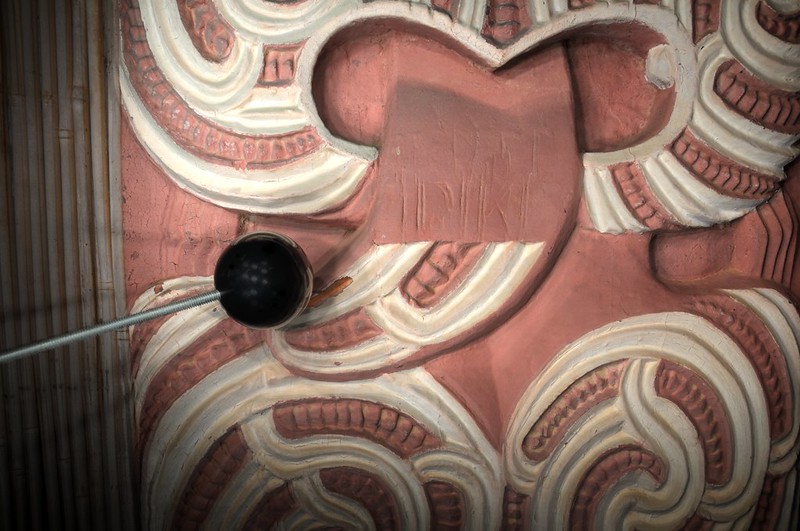
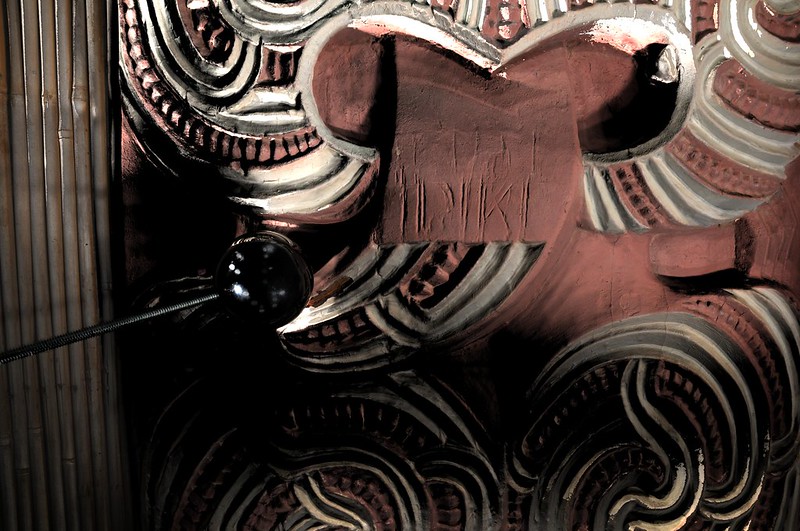
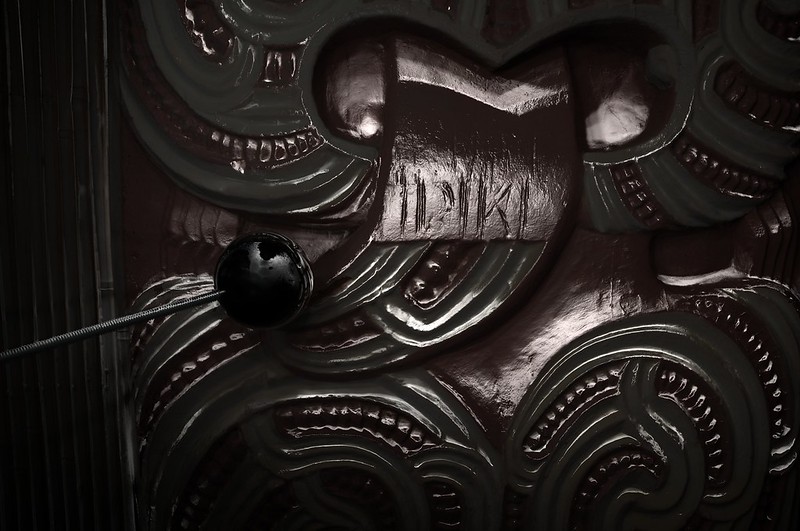
Word no. 4 close-up
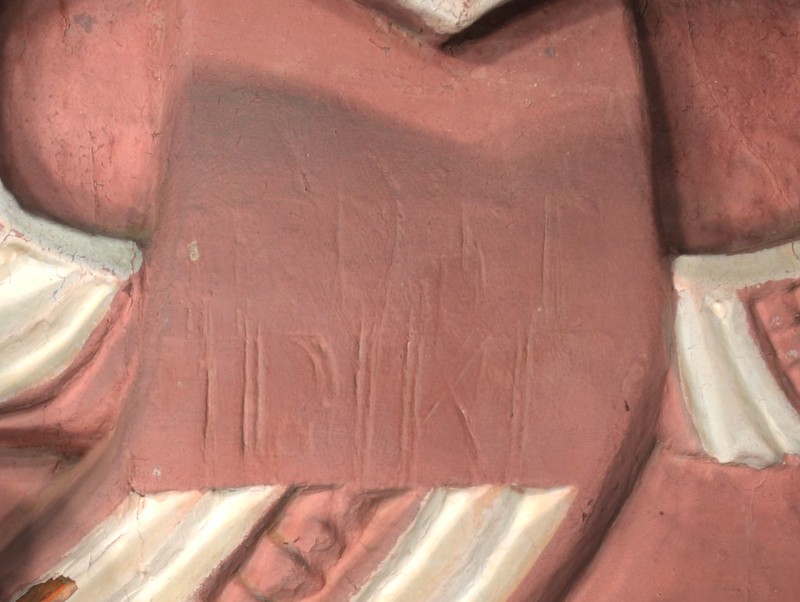
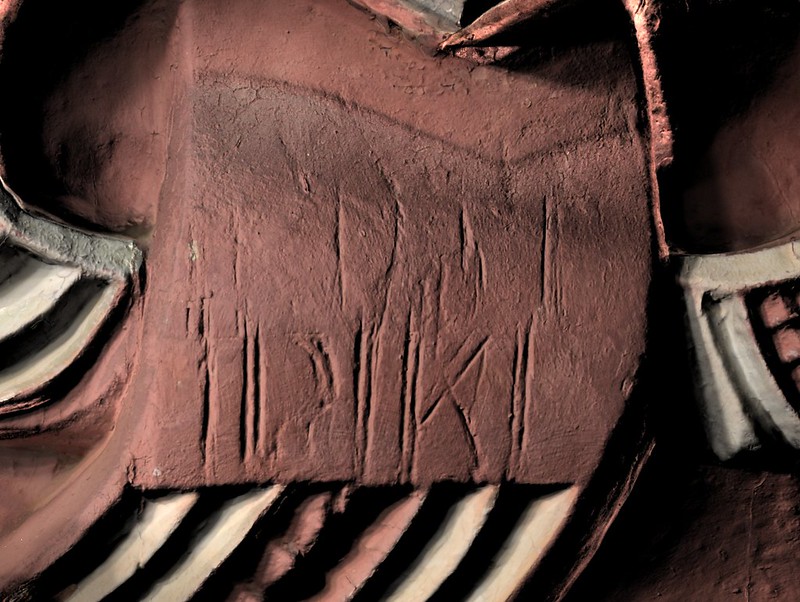
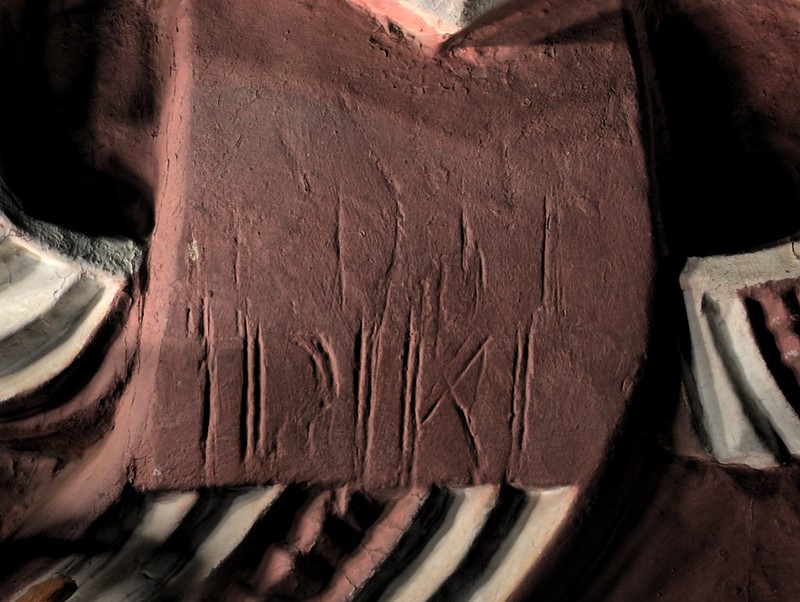
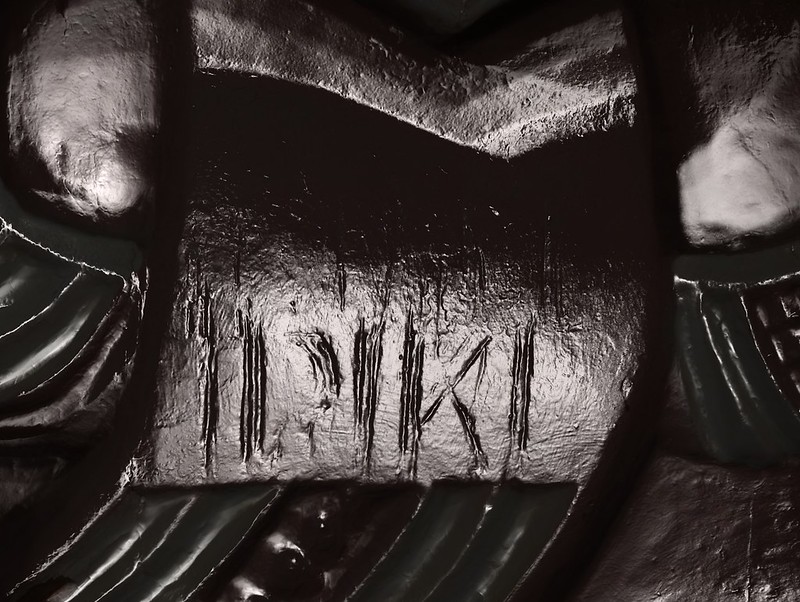
Word no. 5
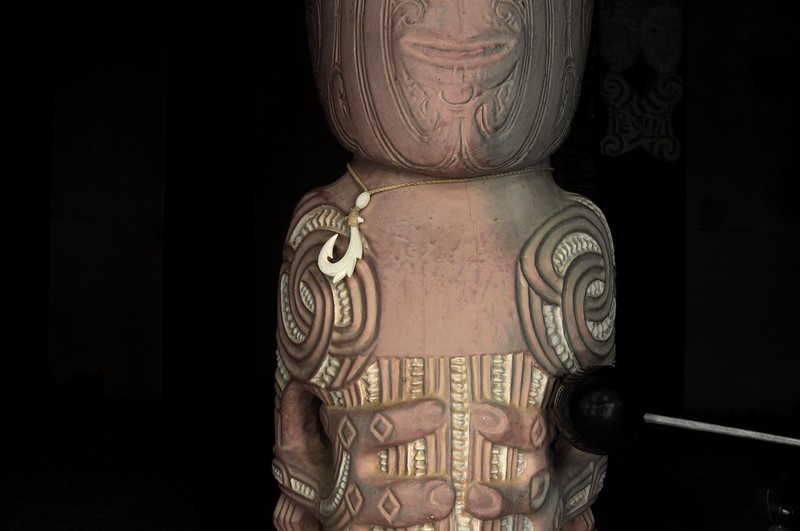
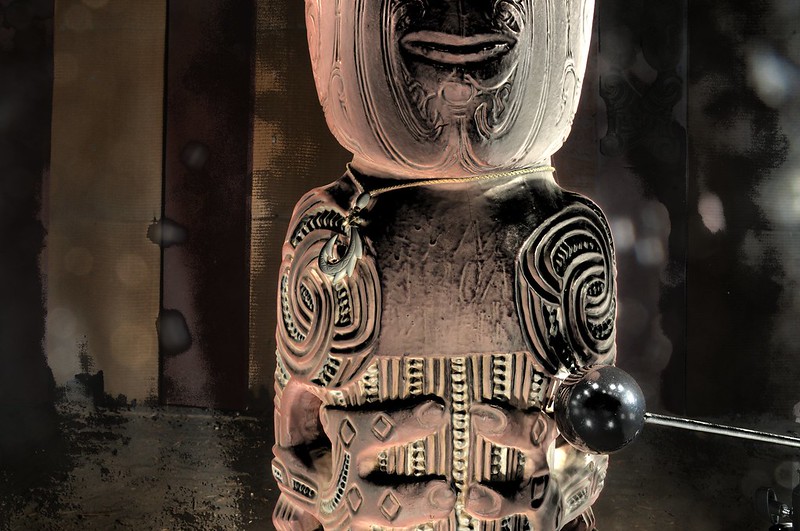
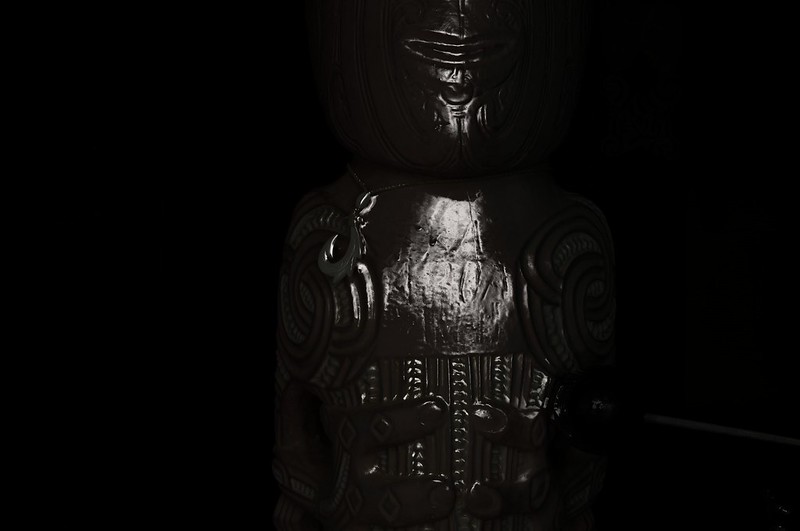
Word no. 5 close-up
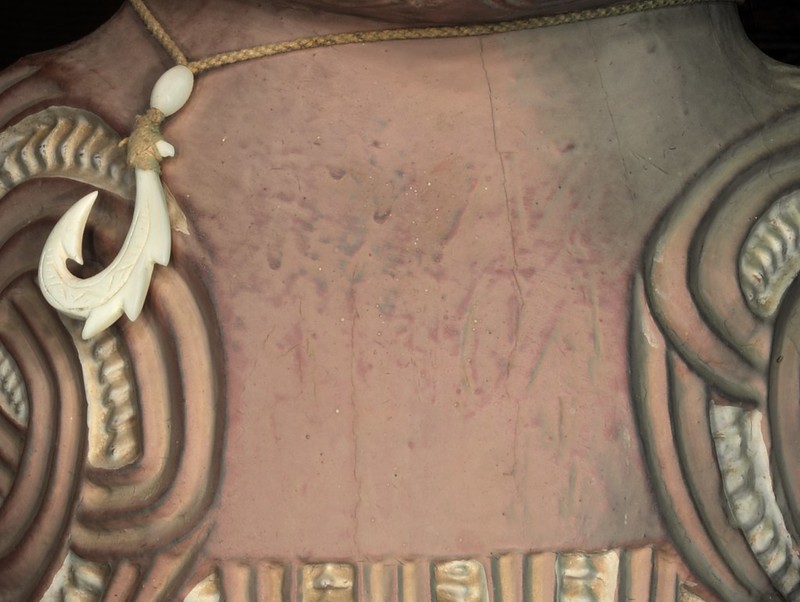
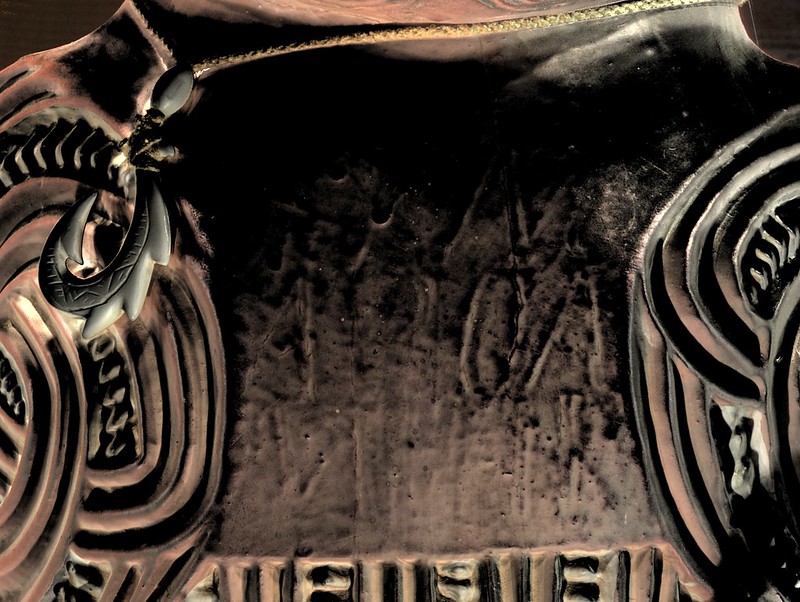
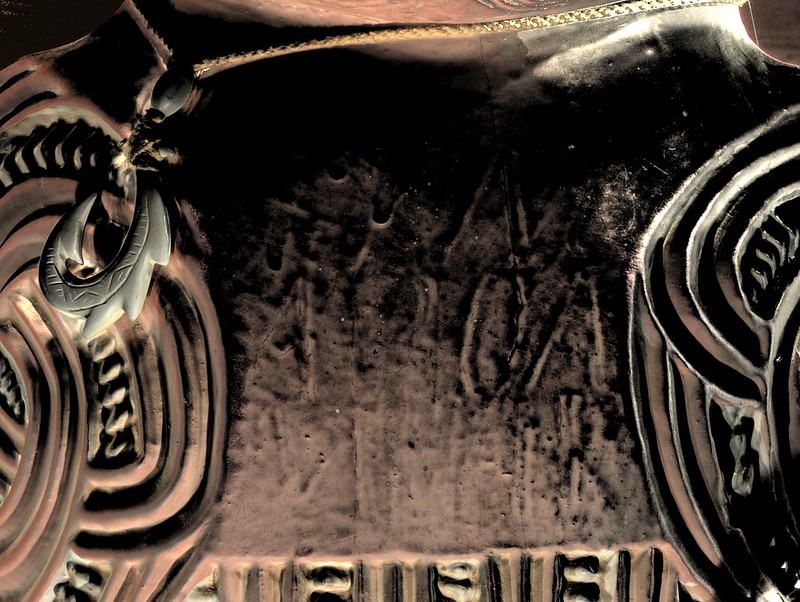

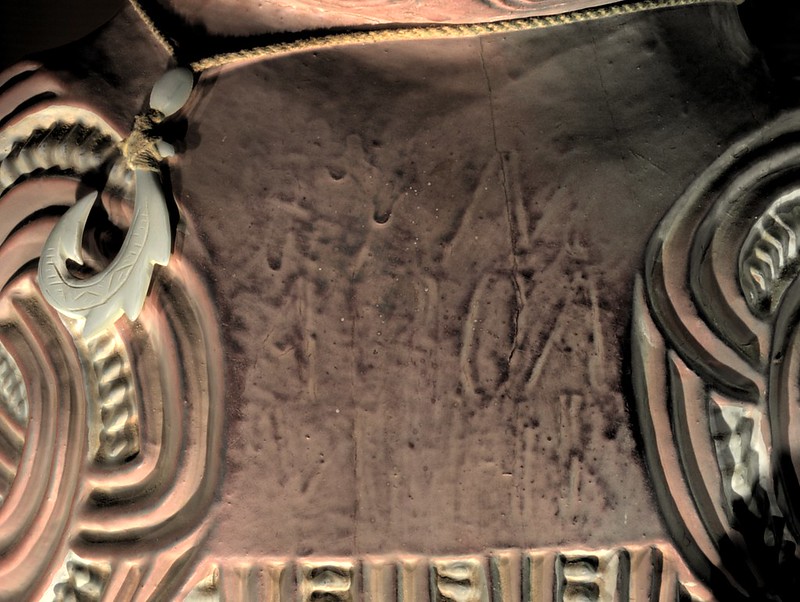
Panoramas
Using a Gigapan, a robotic tripod head which attaches to a digital camera, we created 360 degree panoramas of high resolution images of the areas around Hinemihi. You can try a free version of panorama software here: http://research.microsoft.com/en-us/um/redmond/groups/ivm/ice/
Panoramas Results
Hinemihi Hangi
On Sunday 30th June, Yvonne Marshall returned to Hinemihi to attend the annual Hangi fundraiser, organised by the Te Kohanga Reo o Rānana. Yvonne handed out leaflets explaining the results of the RTI and photogammetry, that we’ve outlined above, and showed people the images of the 3D model of the central post that we’ve made.
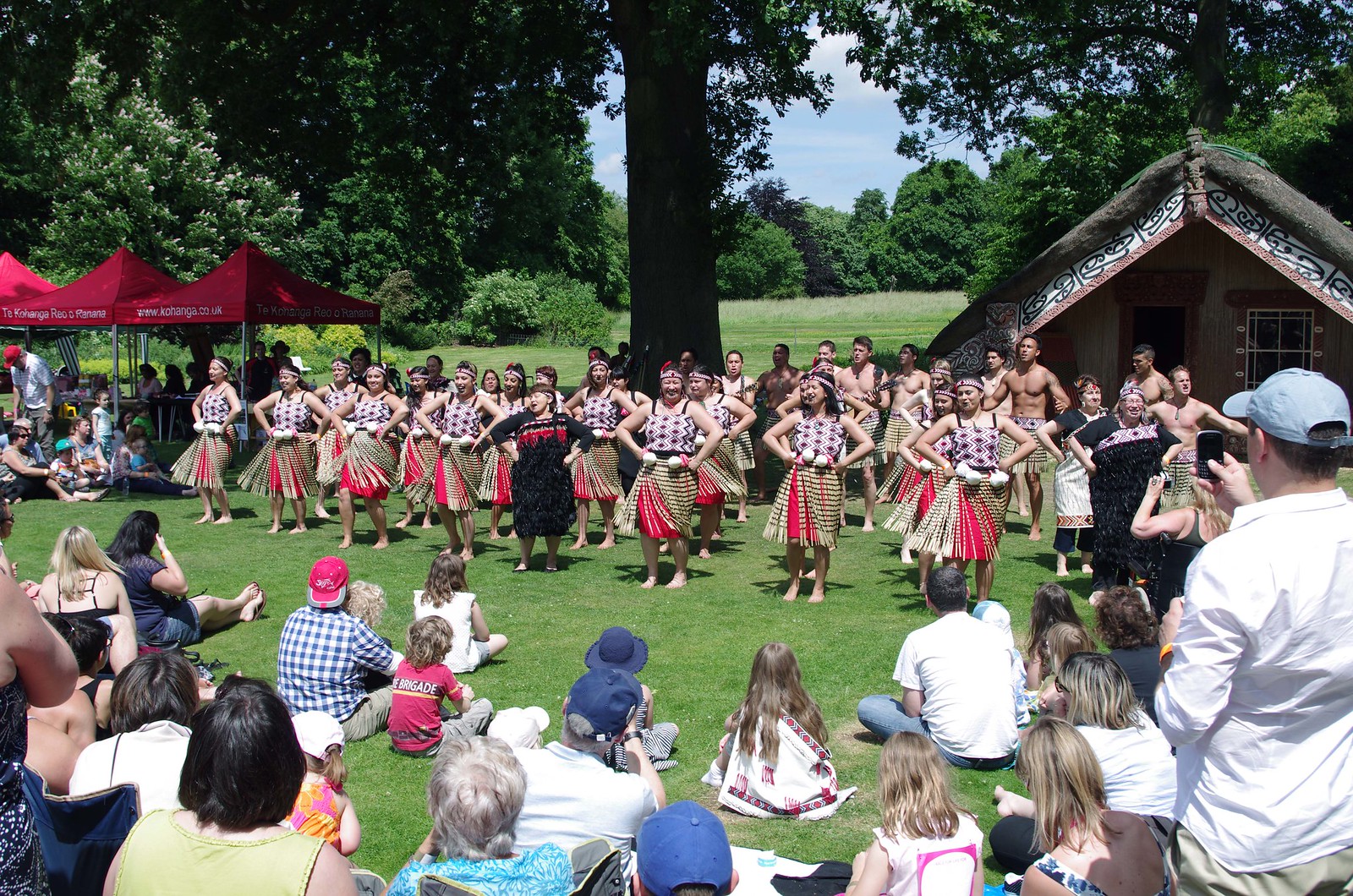
The food was fabulous, and the weather gorgeous.
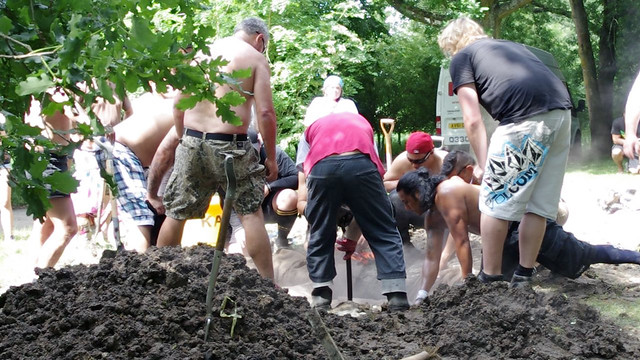
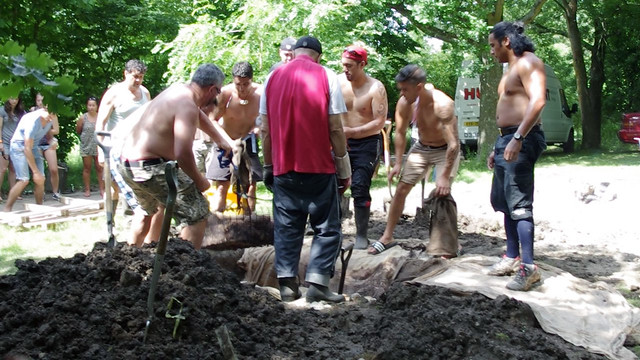
You can see more about the event at their website: http://kohanga.co.uk/hangi/
